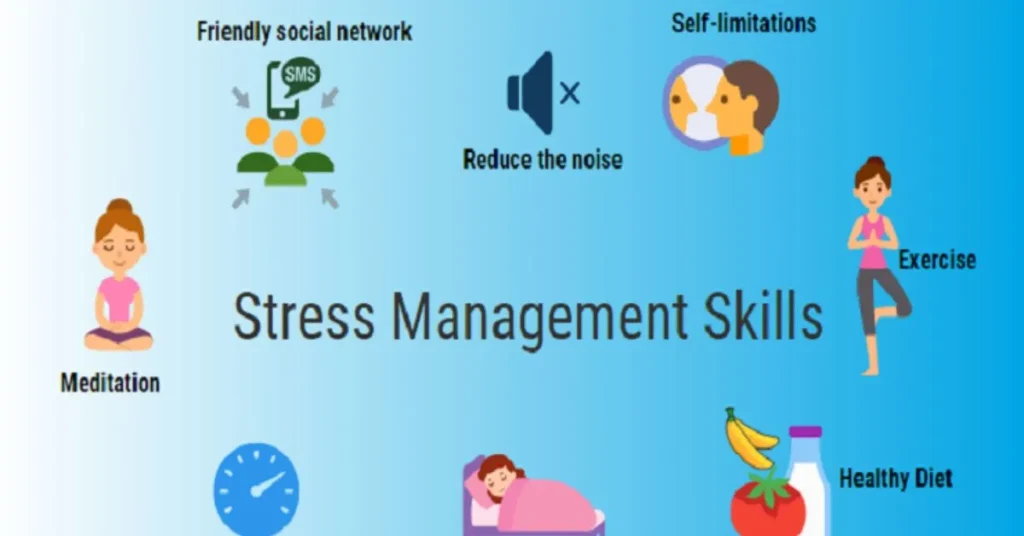Managing stress is crucial for maintaining productivity and overall well-being in today’s fast-paced professional environment. American professionals, particularly, face immense pressure from deadlines, expectations, and the balancing of personal and work lives. Here, we’ll explore effective stress management techniques that can help professionals reduce stress and maintain a healthy work-life balance.
Understanding Stress in the Workplace
Stress is a natural response to challenges and demands, and in moderation, it can sometimes motivate individuals to perform better. However, chronic stress can lead to burnout, anxiety, and health issues. According to the American Psychological Association (APA), over 60% of professionals report feeling stressed regularly, making it essential to develop stress management strategies.
Techniques to Manage Stress
Time Management
One of the leading causes of stress in the workplace is poor time management. To reduce stress levels:
- Prioritize tasks: Create a to-do list and focus on high-priority tasks.
- Set realistic goals: Break large projects into smaller, manageable tasks with achievable deadlines.
- Avoid multitasking: Focusing on one task at a time improves efficiency and reduces overwhelm.
— Senthazal Ravi (@senthazalravi) June 11, 2024
Mindfulness and Meditation
Mindfulness practices, such as meditation, can significantly reduce stress by encouraging individuals to stay present. Professionals can incorporate:
- Daily meditation: A 10-minute session of deep breathing or guided meditation can help clear the mind.
- Mindfulness breaks: Short breaks during the day to focus on breathing or the environment can calm the mind.
Physical Activity
Physical exercise is a proven way to combat stress. Engaging in regular physical activities, such as:
- Walking: A short walk during lunch breaks helps to reduce tension and clears the mind.
- Exercise routines: Incorporating a 30-minute exercise routine, such as yoga, swimming, or jogging, several times a week can boost endorphin levels, enhancing mood and reducing stress.
Social Support
Building strong social connections can alleviate stress. Connecting with colleagues, friends, or family provides emotional support, encouragement, and an outlet for venting.
- Workplace support groups: Many companies now offer wellness programs or stress management workshops.
- Talking to loved ones: Sharing your feelings with a supportive partner, friend, or family member can reduce anxiety and stress.
Work-Life Balance
A healthy work-life balance is key to managing stress. Overworking leads to burnout, so professionals should:
- Set boundaries: Establish clear boundaries between work hours and personal time. Avoid checking emails or working after office hours unless necessary.
- Take time off Vacations and regular breaks help professionals recharge and come back more focused and productive.
- Engage in hobbies: Participating in activities outside work, such as reading, painting, or gardening, allows individuals to relax and unwind.
Read Also:
Healthy Lifestyle Choices
Maintaining a healthy diet and sleeping well can also reduce stress:
- Eat a balanced diet: Avoid excessive caffeine, sugar, and processed foods, which can increase anxiety and stress.
- Sleep: Aim for 7-9 hours of sleep per night to ensure the body and mind are well-rested.
Professional Help
If stress becomes unmanageable, seeking professional help is essential. Many companies offer Employee Assistance Programs (EAPs) that provide counseling services.
- Therapy: Speaking with a licensed therapist can help identify stressors and develop coping strategies.
- Coaching: Career or life coaches can guide managing work challenges and improving work-life balance.
Conclusion
Effective stress management is critical for American professionals to maintain their mental and physical health. By incorporating techniques such as time management, mindfulness, physical activity, and seeking support, individuals can better cope with the pressures of professional life. Prioritizing self-care and work-life balance is essential for long-term well-being and success in the workplace.


